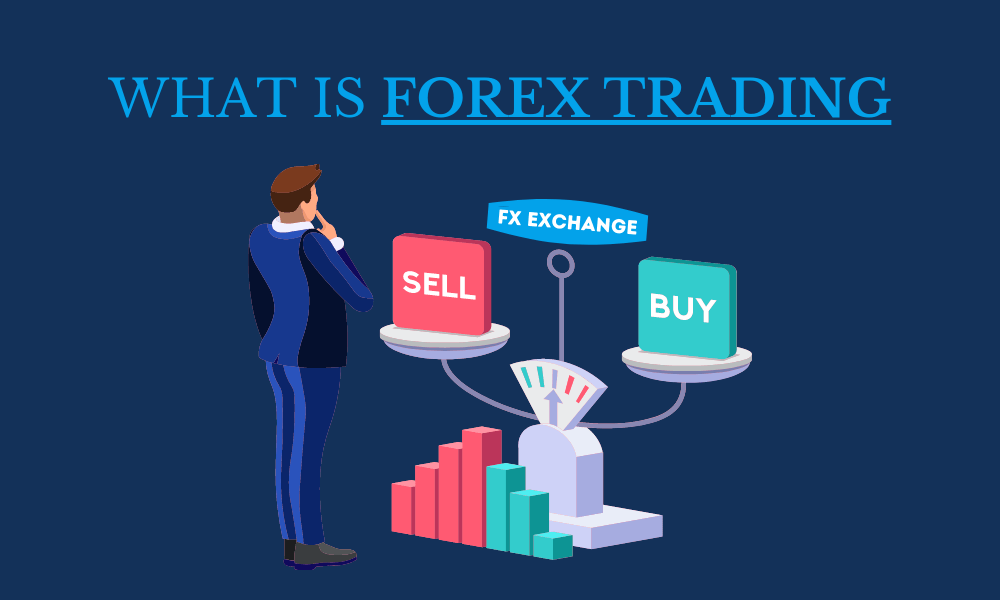
Forex is the most liquid market in the world.
There is a massive amount of money traded within the forex markets every day. It's around $6.6 trillion per day.
A number that will most likely never be topped apart from the forex markets themselves. No other market comes close, and no different market probably will.
The foreign exchange is also known as the forex or FX market.
The FX market is a global financial market that allows one to trade among currencies. In short, currencies are traded in the forex market.
Forex trading refers to buying or selling one currency in a swap for another.
Forex is the most heavily traded market worldwide because its participants are general people, corporations, and countries.
Forex trading is done between two parties directly, no third party is required like stocks or commodities markets. Forex market is an over-the-counter (OTC) market.
It is run by a global network of banks spread. Across the world, there are 4 central Forex trading markets in different time zones: Tokyo, Sydney, New York, & London. Forex has no central location, so forex trading is open 24 hours a day.
There are 3 types of Forex Markets:
Spot Forex Market is the biggest of the forex markets. The largest amount of currency trades is executed here.
The currency pair exchange takes place at the same time when the trade is settled on the spot or within a short duration.
In this market, contracts are settled to buy or sell a set amount of currency at a fixed price in the future.
Trading must take place on the fixed date or range of future dates that are mentioned on the contract.
In the future market, a contract is made to buy or sell a fixed amount of currency at a fixed price and date in near future.
It's not like a futures market, the contract of the future market is lawfully binding.
Traders who presume on forex prices do not take delivery of the currency. Instead, they predict the exchange rate to take advantage of price moves in the market.
Do you know the 6 Simple Forex Trading steps ?
Traders adopt a number of different ways to invest & speculate in currencies.
Among the financial tools, the most popular ones are Currency Futures, Currency ETFs, Currency Options, Over-the-counter (OTC), Forex CFD (contract for difference), and Retail Forex.
Futures are contracts to buy or sell a particular asset at a fixed price on a future date.
A currency ETF (exchange-traded funds) offers exposure to a single currency or basket of currencies.
Currency ETFs allow general individuals to gain exposure to the forex market via a managed reserve without the loads of placing individual trades.
Forex Spread Bet is a secondary product. Spread betting doesn't impose ownership of underlying assets but creates an opportunity to speculate on price movement.
An “option” is a financial tool that offers the buyer the right or the option, but not the responsibility, to buy or sell an asset at a fixed price on the option’s expiration date.
Over-the-counter (OTC) market also known as The spot FX is an “off-exchange” market. This is a big, expanding, and liquid economic market that runs 24 hours a day.
A contract for difference is a financial derivative. Derivative products chase the market value of an underlying asset. Traders can speculate whether the price will rise or fall soon.
There is a secondary Over-the-counter (OTC) market that creates opportunities for retail traders to participate in the forex market.
To conclude, forex trading is all about winning and losing. But if you really stick with your strategy and plan, I guess you’ll eventually be on the winner list. All you have to do is keep your patience alive.
GOOD LUCK!